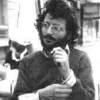What are your areas of interest?
Areas of Interest
57 members have voted
-
1. What are your areas of interest?
-
Philosophy of Language11
-
Philosophy of Mind15
-
Metaphysics13
-
Epistemology14
-
Ethics16
-
Metaethics9
-
Philosophy of Action4
-
Philosophy of Religion11
-
Philosophy of Math/Logic11
-
Political Philosophy14
-
Philosophy of Law3
-
Philosophy of Science14
-
Ancient7
-
Medieval/Early Modern7
-
Kant + 19th Century16
-
Early Analytic4
-
20th Century Continental15
-
Feminist Philosophy11
-
Eastern Philosophy3
-
Other6
-


Recommended Posts
Create an account or sign in to comment
You need to be a member in order to leave a comment
Create an account
Sign up for a new account in our community. It's easy!
Register a new accountSign in
Already have an account? Sign in here.
Sign In Now